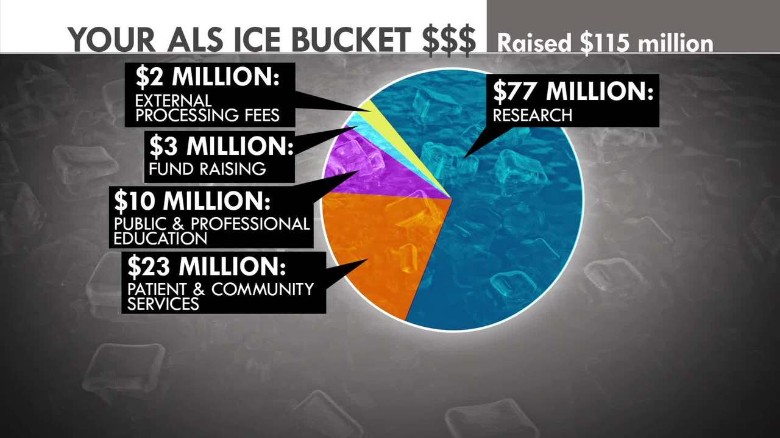Each day in the United States, about 15 individuals are diagnosed with a fatal motor neuron disease called ALS. This diagnosis is not one that can be lifted: ALS has no known cure. And after the physician mutters the three words “You have ALS,” the individual’s life is changed forever, their days become numbered, and they begin to ask themselves: What is going to happen to me?
What these individuals find out is terrifying, absolute, and unstoppable: ALS will lead to the death of voluntary muscles, and will take away:

- Their ability to move
- Their ability to speak
- Their ability to eat
and finally… - Their ability to breathe
But perhaps the most terrifying part about ALS is what it doesn’t take away: your brain.
Individuals diagnosed with ALS retain cognitive function. They are still there mentally, even if their bodies aren’t there physically. And with that information, I will leave you with some food for thought:
Could you imagine watching your body fade away? The effect that this would have on your loved ones? Being constantly aware that you have an expiration date, and that that date is quickly approaching?
I can’t even begin to fathom these feelings, but for over 20,000 individuals in America, these thoughts have become reality.
The Science behind ALS:
- ALS can be divided into two categories
- Familial (fALS)
- This form of ALS has an inheritable, or genetic, component.
- It is likely the result of gene mutations that are inherited in an autosomal dominant fashion.
- Sporadic (sALS)
- This form of ALS has no known causes and occurs randomly.
- Although not inherited, sporadic forms of ALS have also been linked to mutated genes
- This form of ALS has no known causes and occurs randomly.
- Familial (fALS)
In addition to two main categories, there are also two main theories as to what is happening within the bodies of individuals living with ALS:
- oxidative stress → mitochondrial abnormalities → protein aggregation
- This oxidative stress is likely the result of a mutation in the gene
https://journals.sagepub.com/doi/pdf/10.1177/1073858414561795 https://journals.sagepub.com/doi/pdf/10.1177/1073858414561795 SOD1
- SOD1 is needed to remove dangerous, unstable superoxide radicals that form in the body
- When this gene is mutated, SOD1 is not able to remove these radicals, and they begin to accumulate within the cell, specifically within mitochondria
- Soon after their formation, the SOD1 mutants will get engulfed by healthy motor neurons and will:
- build up within the cell, or aggregate together
- cause the aggregation and improper folding of other necessary proteins within the body
- lead to hyperactivation of the motor neuron, also known as excitotoxicity
- induce motor neuron death
- Soon after their formation, the SOD1 mutants will get engulfed by healthy motor neurons and will:
- This oxidative stress is likely the result of a mutation in the gene
- RNA dysmetabolism
- This is believed to be the result of an expanded GGGGCC (G4C2) repeat in the C9orf72 gene
- This repeat is likely the cause of something known as an RNA gain-of-function mutation in which RNA post-transcriptional modifications are flawed and proper translation of RNA into proteins is unable to occur
- As a result, RNA transcripts will begin to aggregate together, preventing the translation of proteins needed for the proper functioning of the voluntary muscles in the body.

http://flipper.diff.org/app/items/6414 -
- In ALS, specifically, these proteins will aggregate within motor neurons, leading to their death, subsequent muscle atrophy, and thus loss of motor function.
-
- This is believed to be the result of an expanded GGGGCC (G4C2) repeat in the C9orf72 gene
So what can you do to help?

- Raise Awareness
- The link below is a calendar that was released during ALS awareness month in May that depicts 31 different ways that you can help raise awareness on ALS.
- Just because it isn’t May doesn’t mean you can’t help raise awareness!
- http://web.alsa.org/site/PageServer?pagename=AAM_calendar_PA
- The link below is a calendar that was released during ALS awareness month in May that depicts 31 different ways that you can help raise awareness on ALS.
- Help Fund Research
- This is a direct link to make donations to the ALS Foundation
- Read about current research, and how your donation will be used
- Learn how you can help support current and future ALS research
- This is a direct link to make donations to the ALS Foundation
- Be kind, be understanding, and help those who can’t help themselves
- Below is a link to an article giving helpful and meaningful tips to those who have recently been diagnosed with ALS
http://www.alsa.org/about-als/facts-you-should-know.html
https://www.ncbi.nlm.nih.gov/pubmed/27150074
https://journals.sagepub.com/doi/pdf/10.1177/1073858414561795
https://www.ncbi.nlm.nih.gov/pmc/articles/PMC3923493/